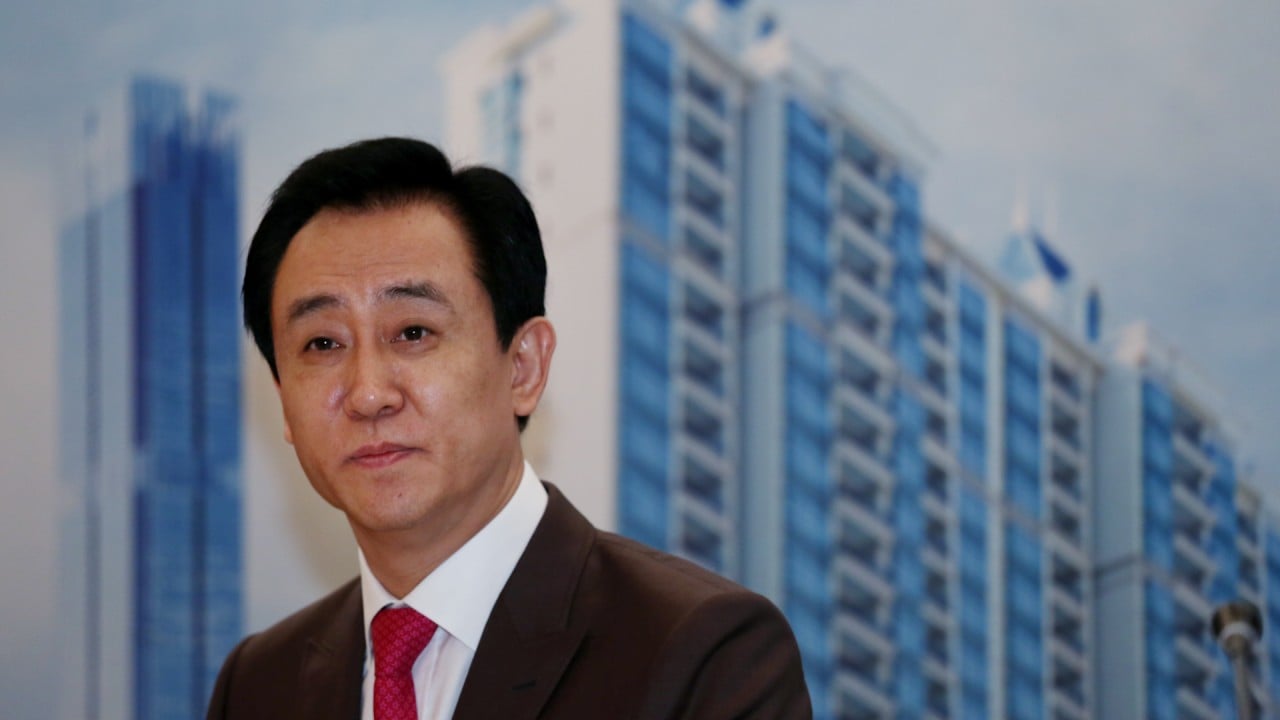
China Evergrande says founder Hui Ka-yan under ‘mandatory measures’ for alleged crimes, amid stock trading halt in Hong Kong
- Shares of China Evergrande, Evergrande Property Services and China Evergrande New Energy Vehicle Group will be suspended from trading until further notice
- Developer said it has been notified by authorities that its chairman and founder has been placed under ‘mandatory measures’ for unspecified crimes
Evergrande on Thursday asked for the suspension of trading in its shares, as well as shares of Evergrande Property Services and China Evergrande New Energy Vehicle Group, without giving a reason. The three stocks would remain halted until further notice, it added in the latest announcement.
The crisis has intensified as other major developers continue to face pressure as China’s economy slows, and big bets on the nation’s smaller cities have weighed on the ability of developers to pay their debts and finish properties.
How Hui Ka-yan plans to rescue Evergrande from China’s corporate graveyard
The Hang Seng Index fell 1.4 per cent on Thursday, while a gauge tracking 10 Hong Kong-listed mainland developers also lost 1.4 per cent to near a one-year low.
Evergrande sought Chapter 15 bankruptcy protection in the US last month as it sought to restructure its offshore debt.
Last week, the company scrapped six creditor meetings scheduled for September 25 and 26, and disclosed it was unable to meet regulatory requirements to issue new bonds – a key plank in its restructuring proposal to cure US$20 billion of defaulted debt and claims. A winding-up petition in Hong Kong will be heard on October 30, having been adjourned several times since June 2022.
Houlihan Lokey, Evergrande’s external financial adviser, did not immediately reply to an email seeking comment on the status of the proposal. Moelis & Co, which is advising a committee of offshore creditors including global hedge funds and distressed-debt investors, also did not reply to a similar request.
Earlier this week, the crisis surrounding the company took another turn for the worse when its Hengda Real Estate Group unit failed to repay a 4 billion yuan (US$547 million) note on Monday, an obligation among the US$327 billion of liabilities choking the home builder. It was talking to bondholders about a solution on a “non-evasion of debt” basis, the company said at the time.
The unit is already under investigation by regulators for market breaches, a transgression that has crippled Evergrande’s ability to sell and list new bonds in offshore markets under China’s capital market rules. Several former executives have been detained over missing funds, local media outlet Caixin Global reported on Monday.
“Recent investigation into Evergrande may help clear the way for government intervention,” Liu Jieqi and Damon Shen, analysts at UOB-Kay Hian Securities, said in a report on September 27. As sold-but-undelivered homes pose a risk to social stability, the developer may need state assistance and a new strategic shareholder to salvage the business, they added.





